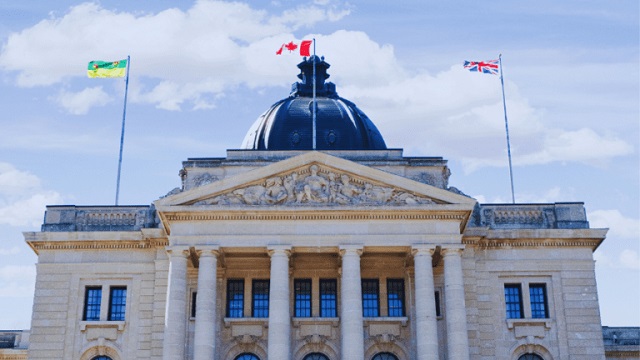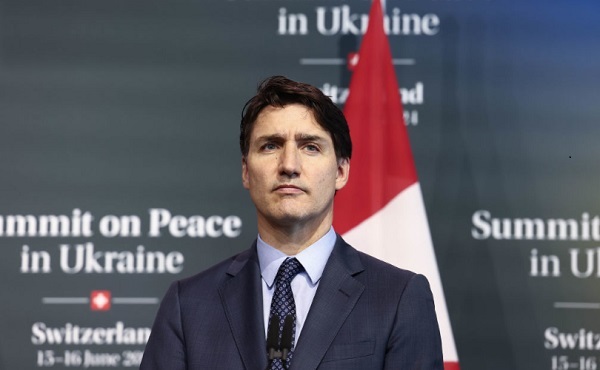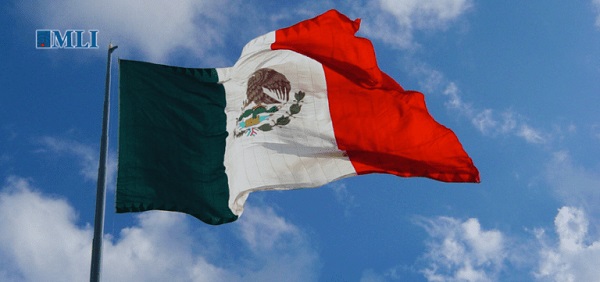Business
The CBC prioritizes allyship over objectivity in Saskatchewan parental consent coverage – An empirical analysis

From the MacDonald Laurier Institute
By Dave Snow
Across 38 articles, the CBC quoted more than five times as many critics of Saskatchewan’s policy as supporters.
A common argument in favour of defunding the CBC is that its news content exhibits ideological bias. In particular, it has been subject to criticism that it is too progressive and Liberal-friendly, including for instance in its recent coverage of the Israel-Hamas war and Chinese interference in Canadian elections.
However, the assumption of the CBC’s progressive bias has rarely been tested empirically. To remedy this, I conducted an analysis of the CBC’s coverage of an issue that became a sustained national news story this past fall: Saskatchewan’s parental consent policy for children’s gender pronoun changes in schools.
The public debate around Saskatchewan’s pronoun policy involves complexity, competing perspectives, and evolving public opinion. It’s the sort of issue for which the role of the news media is presumably to establish and situate the facts, present the different points of view, and help Canadians work through the nuances. Yet, as my analysis shows, that’s not how the CBC’s reporting handled the issue.
Before describing the CBC’s coverage, it’s necessary to briefly describe the genesis and substance of the Saskatchewan government’s policy. In August, the government announced it would require parental consent for students under 16 to change their names or gender pronouns at school. The policy was challenged in court by the University of Regina Pride Centre for Sexuality and Gender Diversity (“UR Pride”), and on September 28, Justice Megaw of the Court of King’s Bench issued an injunction pausing the operation of the policy because of “the potentially irreparable harm and mental health difficulty” for students “unable to find expression for their gender identity.”
Later that day, Saskatchewan Premier Scott Moe announced that his government would respond to the injunction with a law invoking the notwithstanding clause. On October 20, that law, called the Parents’ Bill of Rights, was passed. The law stipulates that if a child under 16 requests that a “new gender-related preferred name or gender identity be used at school,” teachers and school employees “shall not use the new gender-related preferred name or gender identity unless consent is first obtained from the pupil’s parent or guardian.”
As a high-profile issue involving a clash of rights, Saskatchewan’s pronoun policy serves as an ideal case study to examine how the CBC covers contentious social policy disputes. To do so, I conducted a content analysis of all of the CBC’s written articles about Saskatchewan’s pronoun policy from August 22, 2023, the day the government announced its initial policy, to October 22, 2023, two days after the Parents’ Bill of Rights became law. During this period, the CBC published 38 news stories in which Saskatchewan’s policy featured prominently, six of which were written by journalists working for the Canadian Press.
Even before reading the articles, the headlines betrayed the direction of the CBC’s coverage: while no headline made an explicit argument against the policy, fourteen (37 percent) contained what I call “attributed criticism” of Saskatchewan’s policy—denunciation from someone other than the reporter. Examples include “Families of trans kids, activists say they’re angered, scared, disgusted by Sask.’s pronoun law” and “Sask. Opposition says pronoun and naming policy motivated by politics, transphobia.” By contrast, not one of the 38 articles contained attributed praise of the policy; the closest, “Sask. premier touts survey showing support for informing parents of name, pronoun changes in school,” referenced the Premier himself.
As these headlines show, CBC reporters relied heavily on outside sources to describe the policy’s purported impact. To determine who those sources were, I coded every person or organization quoted in the 38 articles into three categories: supporters of the government’s policy, critics of the policy, and sources who were neutral towards the policy (I excluded quotes from the government, politicians, and the judicial injunction itself). I also distinguished between those whose opinions were clearly sought by the CBC and those whom the CBC quoted from the public record.
Across 38 articles, the CBC quoted more than five times as many critics of Saskatchewan’s policy as supporters (81 critics, 15 supporters, and five neutral). Moreover, supporters were grouped into a small number of articles, with six of the 15 supporters quoted in a single story about competing public rallies. Only 16 percent of the total articles (six of 38) quoted at least one supporter of the policy, compared to 95 percent of articles (36 of 38) that quoted at least one critic of the government’s policy. And support was never presented independent of criticism: all six articles that included a quote from a supporter also included at least one quote from a critic.
The critics quoted by the CBC were also far more likely to be in a position of authority, while supporters were almost entirely laypeople. Of the 59 critics whose opinions were sought out by the CBC, 26 were what I classify as “experts”—lawyers and legal scholars, professors, school board presidents, health professionals, and LGBTQ organizations—and a further six were teachers. The focus on expertise was even higher from those quoted from the public record: of the 22 critics who were quoted from the public record, twenty (91 percent) were experts or organizations representing experts. By contrast, CBC reporters did not seek out a single “expert” to speak in favour of Saskatchewan’s policy. Of the 15 quotes from supporters that were sought by the CBC, 11 were from community members or protestors at rallies, while four were from the leaders of three small socially conservative interest groups.
The only expert the CBC quoted in defence of the rationale behind Saskatchewan’s policy (from the public record) was Dr. Erica Anderson, a clinical psychologist and a trans woman who presented an affidavit for the Saskatchewan government in court. The CBC article presented Dr. Anderson in a negative light, calling her a “vocal critic” of youth gender transition while failing to mention her decades of research and clinical experience. Most egregiously, the CBC article did not quote from Dr. Anderson’s affidavit even though the affidavit was the topic of the article (and even though much of it was quoted in the publicly available judicial injunction). Yet the same article included a quote from UR Pride’s legal counsel criticizing Dr. Anderson’s affidavit.
The selective presentation of content was even more apparent when it came to the CBC’s reporting on public opinion polls. Between August and October 2023, three Canadian polls were released regarding pronoun changes at schools. To understand the content of these polls, it is important to conceptualize of three policy options when it comes to informing parents when their child seeks to change gender pronouns at school. These fall along a continuum:
- Option A: Require that a child’s parents must be informed and require consent for any pronoun changes. This was the policy Saskatchewan ultimately chose.
- Option B: Require that parents be informed, but not require their consent.
- Option C: Neither inform parents nor require their consent.
On August 28, the Angus Reid Institute released a poll (though its data had been collected before Saskatchewan’s policy announcement). The poll showed that 50 percent of Saskatchewan residents believed parents should be informed of and provide consent for any changes (Option A); 36 percent of Saskatchewanians thought parents should be informed only (Option B); and only 10 percent said parents should be neither informed nor provide consent (Option C).
The day the poll was released, Saskatchewan’s Premier posted its results on X, highlighting that 86 percent of Saskatchewan residents support “some level of notification for parents when children want to change their gender identity in school.” This, of course, was a sleight-of-hand: Premier Moe’s statement elided the fact that only 50 percent of respondents thought parental consent should be required, which was his government’s policy.
Yet the CBC’s reporting engaged in a similar sleight-of-hand. In the CBC news story about this poll, its subhead read “Survey shows split on whether schools should require parental permission.” The CBC article framed the issue as permission vs. non-permission (Option A vs. Options B and C combined) where a 50-46 split indeed existed. However, none of the critics of Saskatchewan’s policy quoted by the CBC, in this article or in any other, recommended Option B. Of the 81 criticisms of Saskatchewan’s policy quoted across 38 CBC articles, not one said, “We think the Saskatchewan law goes too far, but we support a middle ground where informing parents should be a requirement.” By framing the survey results as “split,” but only giving voice to sub-position within one side of the split that had 10 percent support in Saskatchewan, the CBC overstated the extent to which critics of the law had public support for their position.
Even more concerning was how the CBC reported (or didn’t report) two subsequent polls. On October 12, polling firm Leger released survey results on gender identity and sexual orientation. Unlike the Angus Reid poll, this poll gave respondents only two options: “Schools should have to let the child’s parents know” about pronoun changes (combining Options A and B above), or “schools should not have to let the child’s parents know” (Option C). Although not as strong a divide as the Angus Reid poll, respondents still supported informing parents by an almost three-to-one margin, with 63 percent saying parents should be informed, 22 percent saying no, and the rest unsure.
As the Saskatchewan government had just invoked the notwithstanding clause to pass its law, the Leger survey also asked respondents “How much would you support or oppose your province using the ‘notwithstanding clause’ in the Constitution to ensure schools must inform parents if their child wishes to be identified by a different gender or have their gender pronoun changed?” Respondents supported the use of the clause by a roughly three-to-two margin: 46 percent supported the use of the clause, 31 percent opposed it, and 22 percent did not know.
A day before Leger released its poll, polling firm spark*insights had also released a poll commissioned on behalf of Egale Canada, an LGBTQ advocacy group that was involved in the litigation against Saskatchewan’s law. Unsurprisingly, this survey framed its questions rather differently. On the question of informing parents, spark*insights asked respondents whether a teacher should have “the discretion to not inform a parent if there is a credible risk to believe telling a parent could put the student at risk.” The inclusion of “credible risk” led to different results than the Leger results: 51 percent of respondents agreed that the teacher should have the discretion, while 49 percent said the teacher should have to inform the parent (the numbers for Saskatchewan residents were slightly more in favour of teacher discretion, 55 percent to 45 percent).
On the notwithstanding clause, the spark*insights survey prefaced its question by saying “A court has ruled that the policy will likely cause irreparable harm to affected children under the age of 16.” With the inclusion of the language of “irreparable harm,” only 27 percent of respondents agreed that Saskatchewan should “use legislative powers to immediately overrule the court and enact the law,” while 73 percent said the government “should allow the courts to review the policy before taking further action” (the numbers were 32 percent and 68 percent for Saskatchewan residents).
Of course, by inserting the language of “credible risk” and “irreparable harm,” the spark*insights survey is a textbook example of how not to frame unbiased polling questions. This is clear when the results are contrasted with the Leger poll released only a day later. Whereas Leger’s neutral framing showed a three-to-one ratio on informing vs. not informing parents, the spark*insights “credible risk” ratio was one-to-one; whereas Leger’s neutral framing showed a three-to-two ratio in favour of the notwithstanding clause, the spark*insights use of “irreparable harm” produced a nearly one-to-three ratio on the same topic.
Thus two surveys with differently-worded questions released a day apart produced very different results. How did CBC report on this disjuncture? Simple: it reported on the spark*insights poll, but not the Leger poll.
Whether deliberate or not, the omission of any mention of Leger’s poll was arguably the most damning aspect of the CBC’s coverage of Saskatchewan’s pronoun policy. Indeed, the CBC published 11 articles about Saskatchewan’s pronoun policy in the 10 days after Leger’s survey was released, none of which mentioned the poll. And it is not as if the poll flew under the national radar: it was the subject of a news story written by a Canadian Press reporter and published by CTV News, Global News, The Globe and Mail, and the Toronto Star. The CBC had even used a Canadian Press story about Saskatchewan’s pronoun policy by the same author a month earlier. Yet somehow, a poll that happened to complicate the CBC’s preferred narrative on Saskatchewan’s pronoun policy was simply not mentioned in the CBC reporting.
The above analysis lends empirical weight to what many have long suspected regarding the ideological tilt of the CBC’s news coverage. Perhaps even more troubling, however, is the lack of curiosity present in the CBC’s reporting on Saskatchewan’s pronoun policy. The 38 CBC articles were written by a combined 15 reporters, 13 of whom were CBC employees. Yet there was virtually no attempt to understand the justifications for a policy of informing parents about their children’s pronoun changes. The articles weren’t just one-sided; they were entirely predictable.
Perhaps this can explain why Canadians are increasingly shrugging their shoulders at the idea of a defunded CBC. If the CBC continues to push allyship over objectivity—and to do so in a way that leads to a less informed public—its $1.3 billion annual public subsidy will become increasingly harder to defend.
Dave Snow is an Associate Professor in Political Science at the University of Guelph.
Brownstone Institute
The Most Devastating Report So Far

From the Brownstone Institute
By
The House report on HHS Covid propaganda is devastating. The Biden administration spent almost $1 billion to push falsehoods about Covid vaccines, boosters, and masks on the American people. If a pharma company had run the campaign, it would have been fined out of existence.
HHS engaged a PR firm, the Fors Marsh Group (FMG), for the propaganda campaign. The main goal was to increase Covid vax uptake. The strategy: 1. Exaggerate Covid mortality risk 2. Downplay the fact that there was no good evidence that the Covid vax stops transmission.
The propaganda campaign extended beyond vax uptake and included exaggerating mask efficacy and pushing for social distancing and school closures.
Ultimately, since the messaging did not match reality, the campaign collapsed public trust in public health.
The PR firm (FMG) drew most of its faulty science from the CDC’s “guidance,” which ignored the FDA’s findings on the vaccine’s limitations, as well as scientific findings from other countries that contradicted CDC groupthink.
The report details the CDC’s mask flip-flopping through the years. It’s especially infuriating to recall the CDC’s weird, anti-scientific, anti-human focus on masking toddlers with cloth masks into 2022.
President Biden’s Covid advisor Ashish K. Jha waited until Dec. 2022 (right after leaving government service) to tell the country that “[t]here is no study in the world that shows that masks work that well.” What took him so long?
In 2021, former CDC director, Rochelle Walensky rewrote CDC guidance on social distancing at the behest of the national teachers’ union, guaranteeing that schools would remain closed to in-person learning for many months.
During this period, the PR firm FMG put out ads telling parents that schools would close unless kids masked up, stayed away from friends, and got Covid-vaccinated.
In March 2021, even as the CDC told the American people that the vaxxed did not need to mask, the PR firm ran ads saying that masks were still needed, even for the vaxxed. “It’s not time to ease up” we were told, in the absence of evidence any of that did any good.
In 2021, to support the Biden/Harris administration’s push for vax mandates, the PR firm pushed the false idea that the vax stopped Covid transmission. When people started getting “breakthrough” infections, public trust in public health collapsed.
Later, when the FDA approved the vax for 12 to 15-year-old kids, the PR firm told parents that schools could open in fall 2021 only if they got their kids vaccinated. These ads never mentioned side effects like myocarditis due to the vax.
HHS has scrubbed the propaganda ads from this era from its web pages. It’s easy to see why. They are embarrassing. They tell kids, in effect, that they should treat other kids like biohazards unless they are vaccinated.
When the Delta variant arrived, the PR firm doubled down on fear-mongering, masking, and social distancing.
In September 2021, CDC director Walensky overruled the agency’s external experts to recommend the booster to all adults rather than just the elderly. The director’s action was “highly unusual” and went beyond the FDA’s approval of the booster for only the elderly.
The PR campaign and the CDC persistently overestimated the mortality risk of Covid infection in kids to scare parents into vaccinating their children with the Covid vax.
In Aug. 2021, the military imposed its Covid vax mandate, leading to 8,300 servicemen being discharged. Since 2023, the DOD has been trying to get the discharged servicemen to reenlist. What harm has been done to American national security by the vax mandate?
The Biden/Harris administration imposed the OSHA, CMS, and military vax mandates, even though the CDC knew that the Delta variant evaded vaccine immunity. The PR campaign studiously avoided informing Americans about waning vaccine efficacy in the face of variants.
The propaganda campaign hired celebrities and influencers to “persuade” children to get the Covid vax.
I think if a celebrity is paid to advertise a faulty product, that celebrity should be partially liable if the product harms some people.
In the absence of evidence, the propaganda campaign ran ads telling parents that the vaccine would prevent their kids from getting Long Covid.
With the collapse in public trust in the CDC, parents have begun to question all CDC advice. Predictably, the HHS propaganda campaign has led to a decline in the uptake of routine childhood vaccines.
The report makes several recommendations, including formally defining the CDC’s core mission to focus on disease prevention, forcing HHS propaganda to abide by the FDA’s product labeling rules, and revamping the process of evaluating vaccine safety.
Probably the most important recommendation: HHS should never again adopt a policy of silencing dissenting scientists in an attempt to create an illusion of consensus in favor of CDC groupthink.
You can find a copy of the full House report here. The HHS must take its findings seriously if there is any hope for public health to regain public.
Business
Taxpayer watchdog calls Trudeau ‘out of touch’ for prioritizing ‘climate change’ while families struggle

From LifeSiteNews
The prime minister told a G20 panel this week that fighting so-called ‘climate change’ should be more important to families than putting food on the table or paying rent.
Canada’s leading taxpayer watchdog blasted Prime Minister Justin Trudeau for being completely “out of touch” with everyday Canadians after the PM earlier this week suggested his climate “change” policies, including a punitive carbon tax, are more important for families than trying to stay financially afloat.
In speaking to LifeSiteNews, Canadian Taxpayers Federation (CTF) federal director Franco Terrazzano said Trudeau’s recent comments show his government “continues to prove it’s out of touch with its carbon tax.”
“Canadians don’t support the carbon tax because we know it makes life more expensive and it doesn’t help the environment,” Terrazzano told LifeSiteNews.
Terrazzano’s comments come after Trudeau told a G20 panel earlier this week that fighting so-called “climate change” should be more important to families than putting food on the table or paying rent.
Speaking to the panel, Trudeau commented that it is “really, really easy” to “put climate change as a slightly lower priority” when one has “to be able to pay the rent this month” or “buy groceries” for their “kids,” but insisted that “we can’t do that around climate change.”
Terrazzano said that the Trudeau government’s carbon tax in reality “impacts nearly all aspects of life in Canada by making it more expensive to fuel up our cars, heat our homes and buy food.”
“The carbon tax also puts a huge hole in our economy that we can’t afford,” he said to LifeSiteNews, adding that if Trudeau really wanted to help Canadians and “prove it understands the struggles facing Canadians,” then it should “scrap the carbon tax to make life more affordable.”
On Thursday, Trudeau, who is facing abysmal polling numbers, announced he would introduce a temporary pause on the federal Goods and Services Tax (GST) for some goods.
Conservative Party of Canada leader Pierre Poilievre this afternoon said about Trudeau’s temporary tax holiday that if he is serious about helping Canadians, he would cut the carbon tax completely.
People’s Party of Canada (CPC) leader Maxime Bernier called the move by Trudeau a cheap trick to try and “bribe” Canadians, noting that it will not work.
“What a ridiculous gimmick. Bribing Canadians temporarily with borrowed money,” Bernier wrote.
“When the real solution is to stop growing the bureaucracy, cut wasteful spending, stop sending billions to Ukraine, eliminate subsidies to businesses and activist groups, stop creating new unsustainable and unconstitutional social programs, eliminate the deficit, and THEN, cut taxes for real. None of which he will do of course.”
As reported by LifeSiteNews, a survey found that nearly half of Canadians are just $200 away from financial ruin as the costs of housing, food and other necessities has gone up massively since Trudeau took power in 2015.
In addition to the increasing domestic carbon tax, LifeSiteNews reported last week that Minister of Environment Steven Guilbeault wants to create a new “global’ carbon tax applied to all goods shipped internationally that could further drive-up prices for families already struggling with inflated costs.
Not only is the carbon tax costing Canadian families hundreds of dollars annually, but Liberals also have admitted that the tax has only reduced greenhouse gas emissions by 1 percent.
-

 Brownstone Institute3 hours ago
Brownstone Institute3 hours agoThe Most Devastating Report So Far
-

 Economy15 hours ago
Economy15 hours agoCOP 29 leaders demand over a $1 trillion a year in climate reparations from ‘wealthy’ nations. They don’t deserve a nickel.
-

 Alberta13 hours ago
Alberta13 hours agoOn gender, Alberta is following the science
-

 Energy14 hours ago
Energy14 hours agoOttawa’s proposed emission cap lacks any solid scientific or economic rationale
-

 Bruce Dowbiggin2 hours ago
Bruce Dowbiggin2 hours agoCHL Vs NCAA: Finally Some Sanity For Hockey Families
-

 Brownstone Institute1 day ago
Brownstone Institute1 day agoFirst Amendment Blues
-

 Crime2 days ago
Crime2 days agoMexican cartels are a direct threat to Canada’s public safety, and the future of North American trade
-

 Business2 days ago
Business2 days agoDEI gone?: GOP lawmakers prep to clean house in federal government





